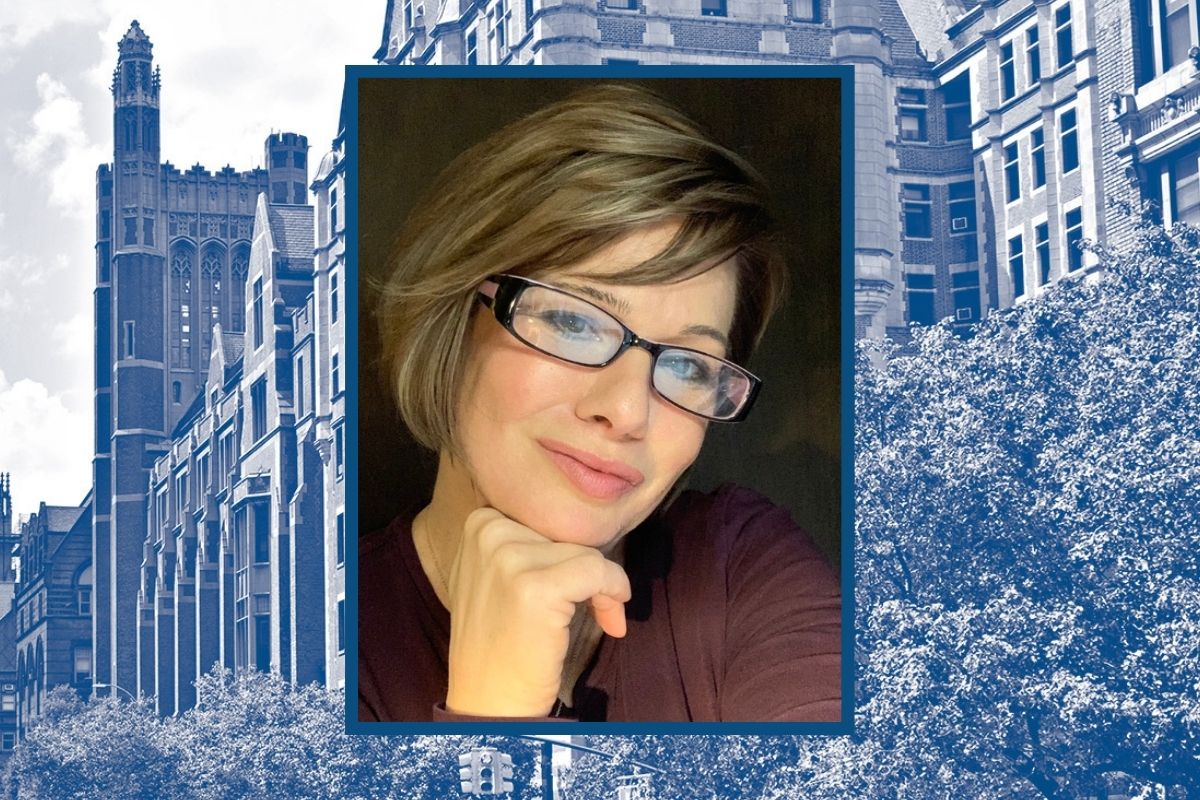Covid dominated the national conversation when audiologist Eileen Davis-Roesler’s former employer, the University of Vermont Medical Center, reached out about the possibility of working with a curtailed case load on an as-needed basis. Davis-Roesler appreciated the gesture.
“But I couldn't go back even if I wanted to because by then everyone in a hospital setting was already wearing masks. And I am 100 percent reliant on lip-reading,” said the profoundly deaf Davis-Roesler.
The virus that Davis-Roesler jokingly says “ruined [her] career” nonetheless forged a pathway to the conferral of a Master’s degree from the TC Deaf & Hard of Hearing program.
Her fourth graduate degree is the latest in an odyssey of learning sprung from a suggestion that the preschool age Davis-Roesler be educated in an institutional setting.
Davis-Roesler’s parents instead chose to raise a non-hearing child no differently than her hearing brother and sister.
“My parents essentially taught me how to talk,” says Davis-Roesler, who prior to TC earned a Masters in Deaf Rehabilitation from NYU, a Master’s in Audiology from Hunter College and a doctorate in Audiology from the University of Florida.
Davis-Roesler along the way married and moved to Chicago, where she and her husband started the family that four years ago settled on the shores of Lake Champlain in Plattsburgh, N.Y.
A hearing aid and a 2003 cochlear implant meanwhile made a successful career in audiology possible until March 2020.
Davis-Roesler was considering her options in an uncertain time when a serendipitous post about deaf education on a Facebook feed tapped into an ingrained sense of being.
“I’ve always been passionate about advocacy,” she says. “I’ve found that people don’t know what they don’t know and I never had a problem telling someone how to communicate with me. If someone isn’t willing to change a little to facilitate a conversation [by not covering their mouth or not facing her directly] then we won’t have a relationship.”
The prospect of improving communication between the hearing public and non-hearing individuals was a big reason a degree in deaf education appealed to Davis-Roesler.
But it paled next to an early diagnosis of her now ten-year-old daughter’s hearing impairment.
Davis-Roesler began TC classes remotely before moving to White Plains for a semester of access to on-campus learning.
“The first two weeks were great,” she recalls. “No husband! No kids!”
By week three, Davis-Roesler, suffice it to say, was counting the days until the end of the semester.
As she completed her studies in Plattsburgh, an opening with the New York State Health Department’s Early Detection Hearing Intervention (EDHI) program caught Davis-Roesler’s attention.
The job was filled by the time she submitted an application.
But clarity emerged about how and where to leverage the knowledge gained in the pursuit of a fourth graduate degree:
“I want to use my personal experience as a deaf person, my professional experience as an audiologist and my parental experience as the mother of a hard of hearing child to educate the masses.”
Be it with an educational program, a non-profit advocate or a medical facility, the overarching objective is to provide parents of the hearing impaired with a blueprint so that their children might succeed as she has.
Though Davis-Roesler missed this recent opportunity to work for a state program that advocates for early identification of hearing issues, her interest prompted an invitation to serve on the EDHI advisory board.
“It’s never too late to reinvent yourself if someone has the courage to believe,” says Davis-Roesler. “I won’t let anyone say ‘no’ to me – I don’t know that word.”
In fact, she laughs, “I’m deaf to it.”
